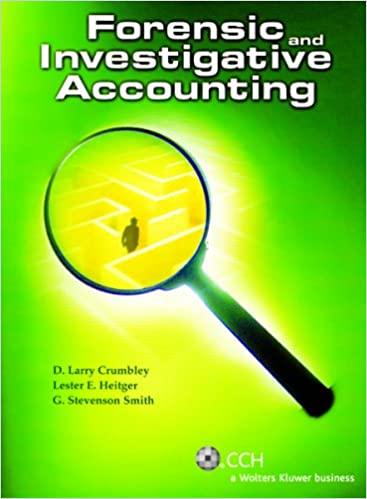In the western provinces of Canada, the Mock-Lee drug ring owns a series of Dollar Stores in
Question:
In the western provinces of Canada, the Mock-Lee drug ring owns a series of Dollar Stores in 10 medium-sized towns. It uses these stores to launder the money it collects from drug sales. The stores are operated by coconspirators of the drug ring. Each of the stores has separate accounts in different banks, whenever possible.
Although a deposit into an account will occasionally be over the threshold reporting limit, the vast majority of cash deposits are under the threshold.
Merchandise sold in the stores is imported from another coconspirator, China Merchandising, operating in a free-trade zone in Singapore. Dollar Stores purchases all its retail merchandise from China Merchandising or other related dummy corporations in the free-trade zone. Wire transfers are made to China Merchandising and its dummy corporations from the 10 different Dollar Stores based on doctored invoices for dollar amounts that are above the true value of the goods. China Merchandising operates completely within the free-trade zone after its merchandise shipments are received from its Chinese vendors. Its bank accounts are in the free trade zone, and the rules of the zone allow the bank to operate under expanded client confidentiality guidelines. Drug shipments to the Mock-Lee organization are separately routed to Canada by drug producers in Thailand. Once the drug shipments have arrived safely in Canada from Thailand, payments are made from the various bank accounts in the free-trade zone to designated accounts of dummy corporations in Thailand or to couriers coming into the free-trade zone to collect cash.
What is the weakest point in this network that Canadian forensic investigators should concentrate their efforts on for investigating the money laundering scheme?
Step by Step Answer:






